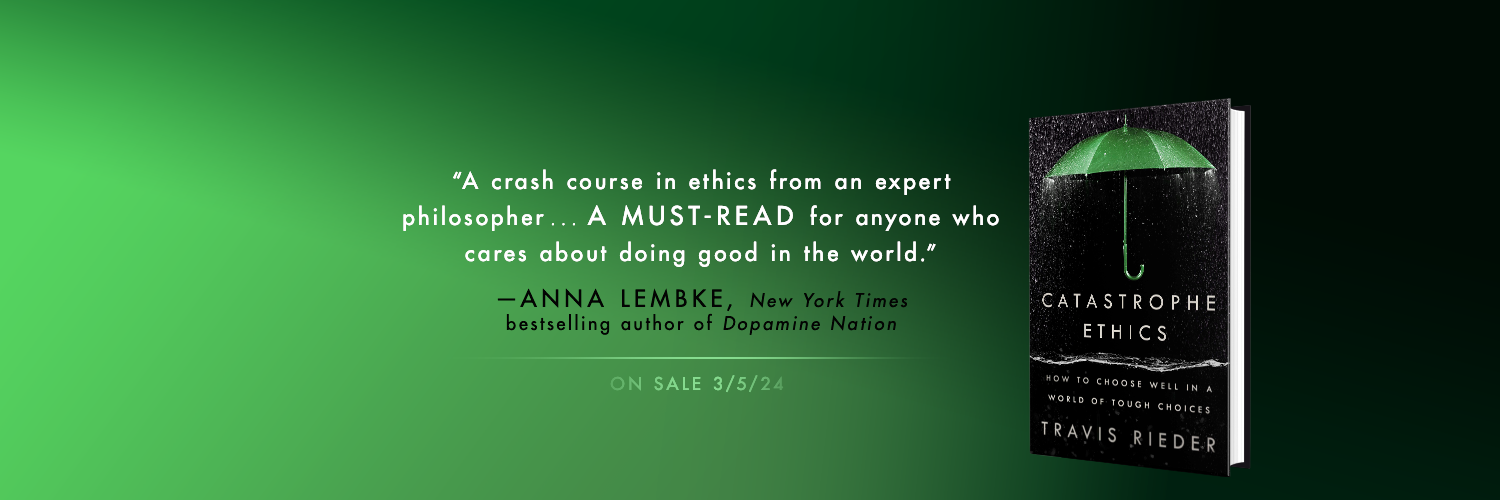“With an open mind and a firm grasp of the issues, Rieder brings the question of living a decent life into the modern era.”
“An excellent resource for the environmentally conscious weighing their life’s choices.”
Catastrophe Ethics—the product of the last four years of thinking, writing and speaking—will finally be available in March of 2024. This book is for anyone who, like me, finds it incredibly difficult to think about how to be a decent human being in the modern world. Am I obligated to recycle and compost? Am I a bad person if I use plastic water bottles? Should I spend a huge amount of money on green products like an electric car and solar panels so as to reduce my personal carbon footprint? Problems like climate change and environmental degradation make these feel like moral choices, but the distressing truth is that my tiny individual contribution just doesn’t seem to make a meaningful difference.
And it’s not just about climate change. Does my favorite chocolate brand utilize slave labor somewhere in the supply chain? (Very likely.) Were any of my clothes the product of child labor? (Probably.) Do my electronics implicate me in the terrible mining practices overseas? (Almost certainly.) So how do I navigate this world in which so many of my personal decisions connect me to so much horror?
In Catastrophe Ethics, I try to answer this question. Doing so takes me on a tour of both traditional moral concepts and newer philosophical tools. In the end, I don’t think I can make living well in this world easy, but I do think I can show how it’s possible. And perhaps that’s enough to recapture a bit of meaning in a world where the size and complexity of the challenges we face can make our moral efforts feel meaningless.


